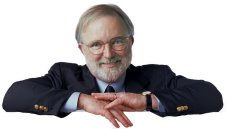doctom.com : about
. . . . . . . . . . . . . . . . . . . . . . . . . . . . . . . . . . . . .

|
doctom.com : about . . . . . . . . . . . . . . . . . . . . . . . . . . . . . . . . . . . . . |
 |
|
what they're saying about tom ferguson"I've been a Tom Ferguson watcher since 1994, when I first heard "doctom" speak at at the first-ever Harvard conference on Online Health. His ideas-and especially his central thesis that although few health professionals are aware of it, we are already living in the early days of Information Age Healthcare-have changed my professional life, as they gave changed the lives of many of my colleagues in the field. Tom has a wonderful ability to perceive and describe key healthcare patterns many years before they are widely appreciated or understood by others."I immediately booked Tom for a one-day regional workshop on the Net-savvy e-patient at the Fred Hutchinson Cancer Research Center in Seattle, which quickly sold out, with participants from the University of Washington, the Oregon Health Sciences University and other leading Northwest institutions. The next year, my National Cancer Institute colleagues and I invited Tom to keynote the National Cancer Information Service's 20th Anniversary Annual Meeting. The NCI colleagues who heard him there still quote his presentation and refer to his ideas. "Tom's remarkable depth of vision, strategic intuition, and inclusionary philosophy for all players has won him widespread respect and affection from most of the key health policy professionals with an interest in online healthcare. He has been honored by a wide-ranging network of health professionals, IT specialists, consumers, and patients. And he moves easily across the usual cultural divides, equally at home in the worlds of academia, research, and government policy, doing valuable work in the public sector, in university and corporate circles, and in the non-profit world. "Advancing the cause of online health has been a personal mission for Tom for more than a decade. He is a superb team player who does not care who gets the credit as long as the field as a whole makes progress. He works with many of the leading organizations in the field, yet is beholding no none. He is as remarkable for his good will, his approachability and his integrity as he is for his diplomacy and his good sense. This makes it possible for him to espouse ideas which, if coming from someone else, might strike listeners as too threatening or too radical. Yet coming from Tom, one can't help but conclude that they make perfect sense, and that the healthcare changes he advocates are long overdue. "Tom is one of the most connected people I know and has mentored many of the key players in this emerging field (myself included). His current network includes most of the top-ranking medical and popular journalists who cover online health. He is a frequent keynoter at industry conferences and is the principal Continuing Medical Education workshop leader in the field, presenting for Stanford Medical School, Harvard Medical School, the American Medical Association, Intel Corporation, the National Cancer Institute, the Rand Corporation, MIT, the University of Texas, and many other leading companies and professional organizations. "Tom Ferguson is one of our most brilliant and influential healthcare visionaries. If you are currently planning a meeting, you have an extraordinary opportunity to bring his ideas to your audience. I believe that they will benefit greatly. And so will you."
-Jean A. Wooldridge, MPH
"He was among the first to publish articles on early online self-help initiatives of the 1970s and 1980s. In the early 1990s, he began focusing his research and writing on the many ways patients were beginning to use online health resources to manage more and more of their own care-and the care of family members. In 1993, Tom organized the first-ever professional meeting on the new field of Consumer Health Informatics (a term he coined). Thanks to his efforts, Consumer Health Informatics has now been accepted as a vital and growing part of the field of Medical Informatics. Tom's 1996 book, Heath Online, was the first to alert readers to the many ways in which the Internet, even then, was beginning to transform healthcare. "In 2000, Tom began teaching the first-ever medical school course in Consumer Health Informatics at the University of Texas. In early 2001, he joined the Pew Internet and American Life project as Senior Research Fellow for Online Health. Tom and his Pew colleagues are currently conducting the most important ongoing tracking survey to document the many ways in which the Internet is empowering e-patients and transforming healthcare. "Tom is an electrifying speaker who is somehow able to bridge the usual gaps that separate online patient-activists from conservative medical professionals. He can speak with equal ease to physicians at the AMA, Stanford, or Harvard (where he frequently speaks and teaches) and to groups of activist e-patients. Indeed, it would not be an overstatement to call him 'the Marshall McLuhan of online health.'"
-Edward J. Madara, Director
"We've spent a lot of time talking about how the Internet is changing the way health care is practiced and medical research is conducted, and for my money, Ferguson knows more about the online health scene than virtually anyone in the field. I quoted him several times in a story I just completed for WIRED Magazine about the impact of the Internet on rare genetic diseases, parent support groups, and patient advocacy. "Ferguson combines his authority on medicine and the Internet with a humanitarian, commonsensical approach, which makes him one of my most valued sources."
-Sara Solovitch
-David Sobel, M.D.
|